
Raiatea: The Sacred Island of French Polynesia
Raiatea, often referred to as the Sacred Island, is one of the Society Islands in French Polynesia. Known for its rich cultural heritage and stunning natural beauty, Raiatea is a must-visit destination for those seeking both adventure and tranquility. The island holds historical significance as the spiritual center of the ancient Polynesian world and is home to the sacred Taputapuatea marae, a UNESCO World Heritage site. This ancient temple complex offers a glimpse into the island's deep-rooted traditions and spiritual practices. The lush landscapes of Raiatea are a paradise for nature lovers. The island is encircled by coral reefs, making it an excellent spot for snorkeling and diving. The crystal-clear waters are teeming with vibrant marine life, including colorful fish and coral gardens. For those who prefer to stay on land, Raiatea offers numerous hiking trails that lead through tropical rainforests and up to the island's highest peak, Mount Temehani. The views from the summit are breathtaking, offering panoramic vistas of the island and its surrounding waters. Raiatea is also a gateway to the nearby island of Taha'a, known as the Vanilla Island. A short boat ride will take you to this fragrant paradise, where you can visit vanilla plantations and learn about the cultivation process. Whether you're exploring ancient ruins, diving in pristine waters, or simply relaxing on a secluded beach, Raiatea offers a unique blend of history, culture, and natural beauty that will leave you enchanted and yearning for more.
Local tips in Raiatea
- Visit the Taputapuatea marae early in the morning to avoid crowds and experience the site in peace.
- Rent a kayak to explore the island's coastline and discover hidden coves and beaches.
- Bring reef-safe sunscreen to protect the coral reefs while snorkeling or diving.
- Try the local cuisine, especially dishes made with fresh seafood and tropical fruits.
- Take a guided tour to learn about the island's flora and fauna, including the unique Tiare Apetahi flower.
Raiatea: The Sacred Island of French Polynesia
Raiatea, often referred to as the Sacred Island, is one of the Society Islands in French Polynesia. Known for its rich cultural heritage and stunning natural beauty, Raiatea is a must-visit destination for those seeking both adventure and tranquility. The island holds historical significance as the spiritual center of the ancient Polynesian world and is home to the sacred Taputapuatea marae, a UNESCO World Heritage site. This ancient temple complex offers a glimpse into the island's deep-rooted traditions and spiritual practices. The lush landscapes of Raiatea are a paradise for nature lovers. The island is encircled by coral reefs, making it an excellent spot for snorkeling and diving. The crystal-clear waters are teeming with vibrant marine life, including colorful fish and coral gardens. For those who prefer to stay on land, Raiatea offers numerous hiking trails that lead through tropical rainforests and up to the island's highest peak, Mount Temehani. The views from the summit are breathtaking, offering panoramic vistas of the island and its surrounding waters. Raiatea is also a gateway to the nearby island of Taha'a, known as the Vanilla Island. A short boat ride will take you to this fragrant paradise, where you can visit vanilla plantations and learn about the cultivation process. Whether you're exploring ancient ruins, diving in pristine waters, or simply relaxing on a secluded beach, Raiatea offers a unique blend of history, culture, and natural beauty that will leave you enchanted and yearning for more.
When is the best time to go to Raiatea?
Iconic landmarks you can’t miss
Water Gardens Vaipahi
Discover the enchanting beauty of Water Gardens Vaipahi, a serene botanical garden in French Polynesia offering vibrant flora and tranquil water features.
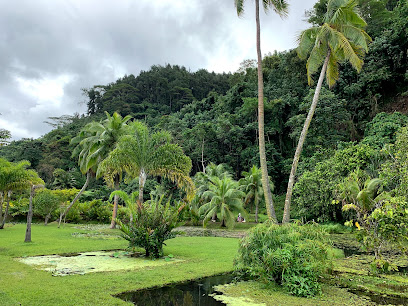
Fa'aruma'i Waterfalls
Experience the stunning beauty and serenity of Fa'aruma'i Waterfalls, a natural paradise in the heart of Tahiti, perfect for nature enthusiasts and adventurers.
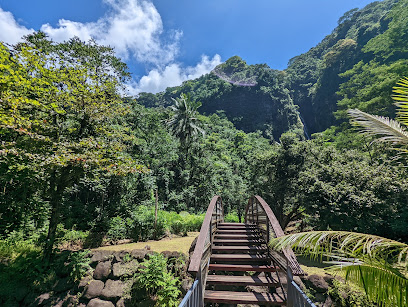
Marae Taputapuatea
Discover the ancient sacred site of Marae Taputapuatea in French Polynesia, where history and spirituality intertwine amidst breathtaking landscapes.
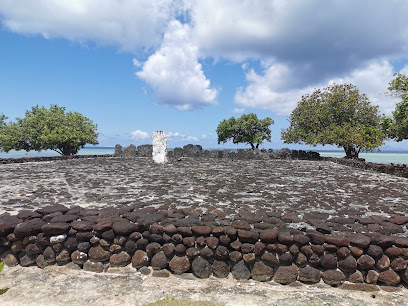
Matira Beach
Discover the serene beauty of Matira Beach in Bora Bora, where soft sands meet crystal-clear waters in a tropical paradise.
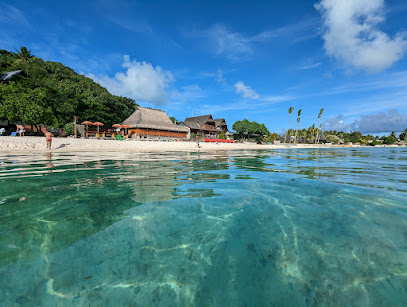
Grottes De Mara'a
Explore the Grottes De Mara'a, where nature's beauty and Polynesian history converge in stunning limestone caves.
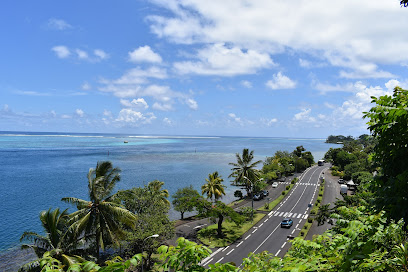
Tohora Bora Bora Snorkeling Lagoon Tours & Whale Watching
Experience the enchanting beauty of Bora Bora with Tohora's snorkeling and whale watching tours, where vibrant marine life meets breathtaking landscapes.
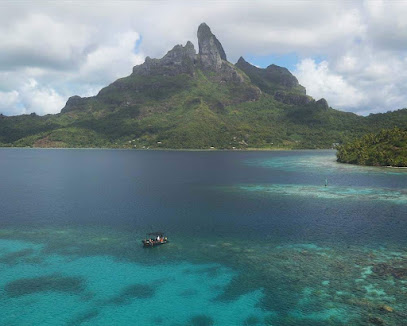
Hôtel Raiatea Lodge
Experience the beauty of French Polynesia at Hôtel Raiatea Lodge, where comfort meets stunning natural landscapes and delectable local cuisine.

'Ārahurahu Marae
Explore the rich cultural heritage and spiritual significance of Ārahurahu Marae in Pā'ea, a must-visit site in French Polynesia.
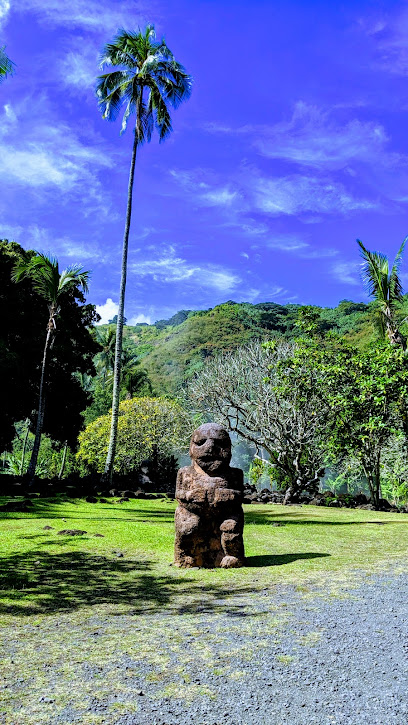
WWII Guns Faanui
Discover the historic WWII Guns in Faanui, Bora Bora, where military history meets breathtaking island scenery, offering a unique cultural experience.
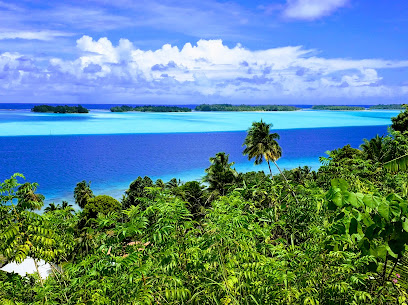
Restaurant Villa Ixora
Experience the best of French Polynesian cuisine at Restaurant Villa Ixora, where every meal is a celebration of flavor and culture.
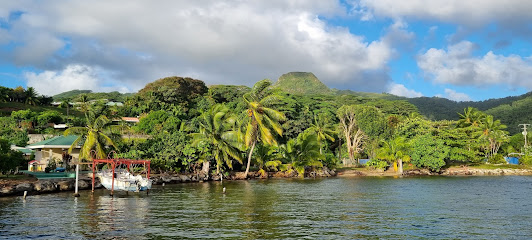
ʻĀmanahune
Experience the stunning views at ʻĀmanahune, a must-visit vista point in Bora-Bora, showcasing the breathtaking beauty of French Polynesia's landscapes.
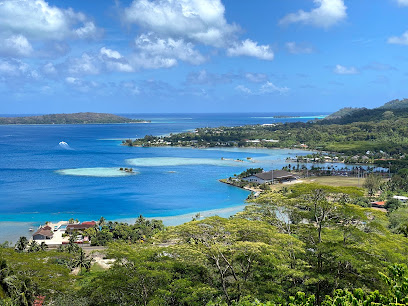
de Raiatea Botanical Garden
Explore the enchanting de Raiatea Botanical Garden in French Polynesia, a serene escape showcasing diverse tropical flora amidst breathtaking landscapes.
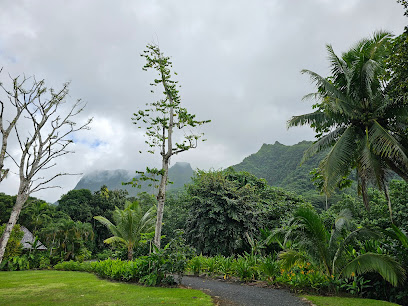
La vallée de la vanille
Discover the aromatic world of Tahitian vanilla at La Vallée de la Vanille, where lush landscapes meet flavorful experiences in Taha'a.
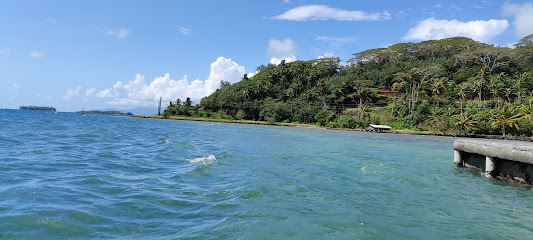
Sunset Beach Motel
Discover the serene beauty of Sunset Beach Motel in Raiatea, where breathtaking views meet comfortable accommodations for the ultimate tropical getaway.

Fare Pea Iti Romantic Lodge
Discover the enchanting charm of Fare Pea Iti Romantic Lodge, a serene resort hotel in Taha'a, French Polynesia, perfect for couples and nature lovers.
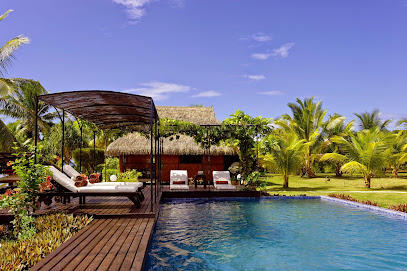
Unmissable attractions to see
Bora Bora
Discover Bora Bora: Turquoise lagoons, overwater bungalows, and Polynesian paradise await in the heart of French Polynesia.
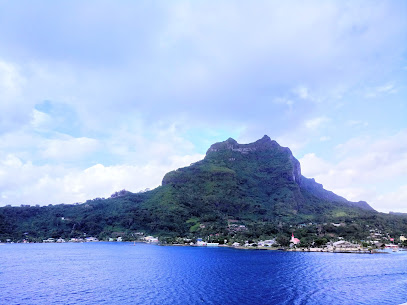
Matira Beach
Discover Matira Beach: Bora Bora's breathtaking public beach with crystal-clear waters, soft white sand, and unforgettable sunsets.
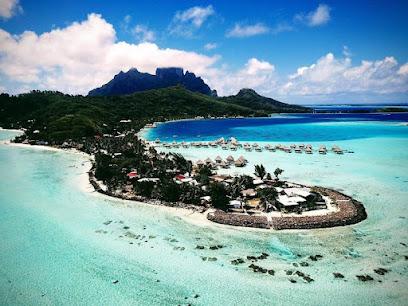
Marae Taputapuatea
Explore the spiritual heart of Polynesia at Marae Taputapuatea, a UNESCO World Heritage site on Raiatea, where ancient traditions come to life.
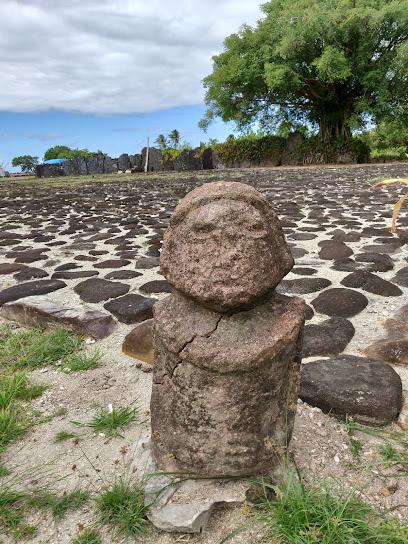
Eleuthera Bora Diving Center
Discover Bora Bora's underwater paradise with Eleuthera Bora Diving Center. Dive into crystal-clear waters and encounter vibrant marine life!
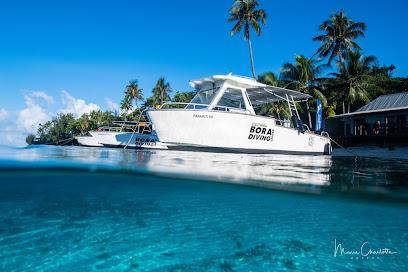
Bora Bora Lagoonarium
Discover Bora Bora's underwater wonders at this natural aquarium, offering snorkeling with diverse marine life in a protected lagoon environment.
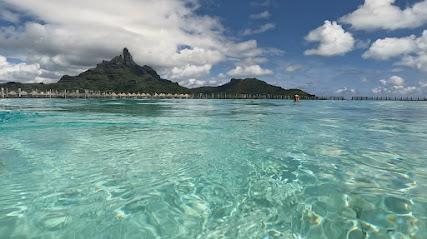
Bora Bora Moana Adventure Tours
Explore Bora Bora's stunning lagoon with Moana Adventure Tours: snorkeling, whale watching, and unforgettable water adventures await!
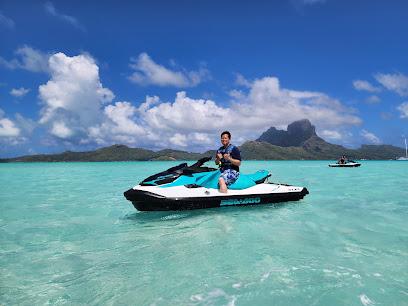
H2O Bora Bora
Explore Bora Bora's stunning lagoon with personalized snorkeling and diving tours. Discover vibrant marine life and hidden gems with H2O Bora Bora.
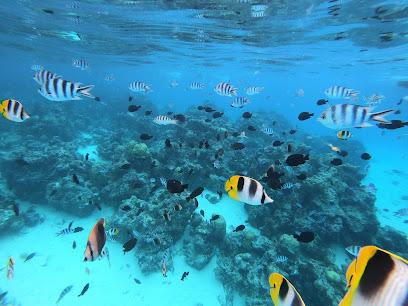
de Raiatea Botanical Garden
Discover Raiatea's botanical paradise: a serene garden with diverse tropical flora, tranquil paths, and unique endemic species.
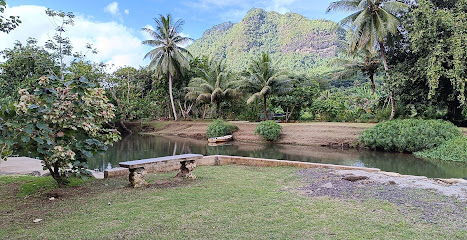
Hemisphere Sub Plongée
Discover Raiatea's underwater wonders with Hemisphere Sub Plongée. Dive into adventure and explore vibrant coral reefs and marine life.
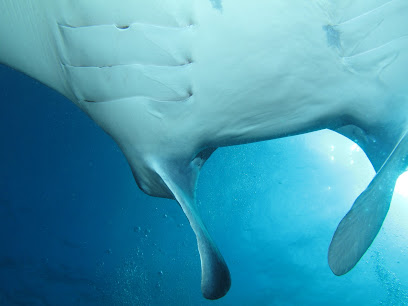
Rhumerie Mana'o/Distillerie Va'eva'e
Discover the authentic taste of Taha'a at Rhumerie Mana'o, where traditional methods meet the exotic flavors of French Polynesia.
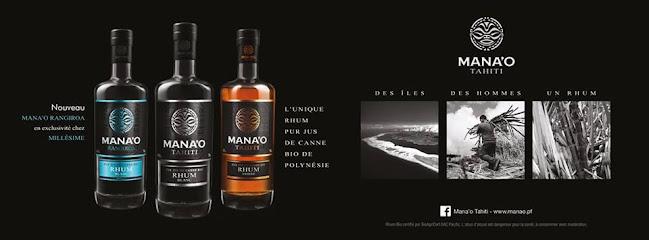
Bora Bora Romantic Tour
Experience romance in paradise with intimate lagoon tours, sunset cruises, and unforgettable moments in Bora Bora's breathtaking scenery.
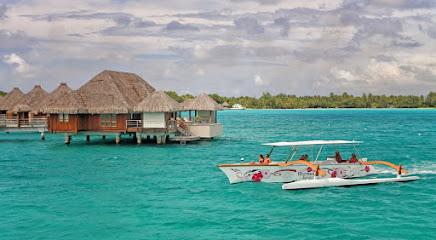
Jardin Du Corail - Coral garden
Discover Taha'a's Jardin Du Corail: a vibrant underwater world teeming with colorful coral and marine life, perfect for snorkeling enthusiasts.
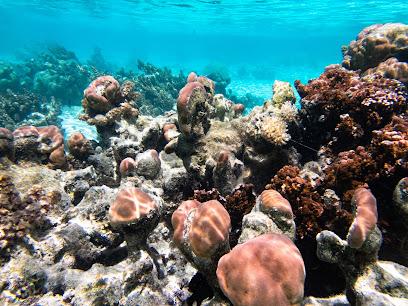
Bora Bora Adventures ATV / QUADS Tours
Discover Bora Bora's hidden trails and panoramic views with thrilling ATV/Quad adventures. Explore the island's rugged beauty beyond the beaches.
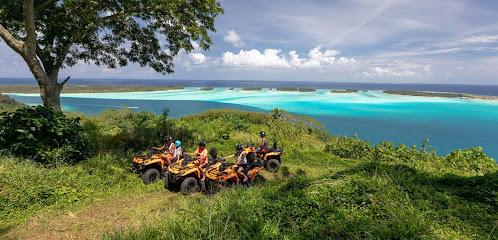
Ia orana pearl farm
Discover the art of Tahitian pearl cultivation at Ia Orana Pearl Farm, where natural beauty meets Polynesian tradition in a serene Taha'a setting.
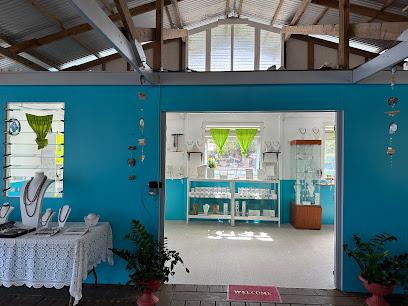
RAIATEA BLUE LAGOON
Explore the pristine waters and vibrant marine life of Raiatea Blue Lagoon, a premier boat tour agency in the heart of French Polynesia.
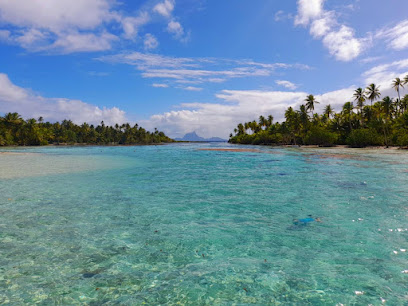
Essential places to dine
The Lucky House Fare Manuia Restaurant
Experience authentic Polynesian flavors at The Lucky House Fare Manuia Restaurant in beautiful Bora Bora.
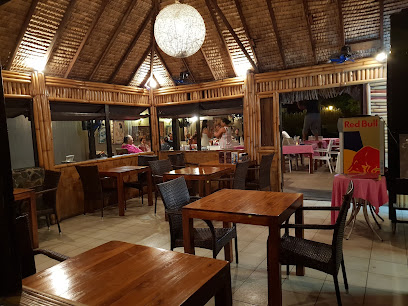
Restaurant Saint James
Discover exquisite modern French cuisine at Restaurant Saint James in stunning Bora Bora - a true culinary haven surrounded by paradise.
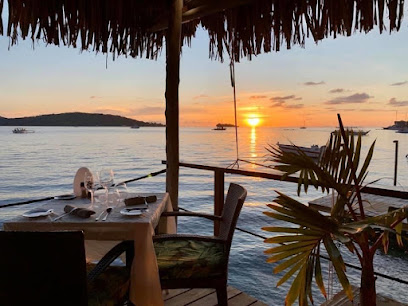
Blue Banana
Discover Blue Banana: A culinary haven in Puna'auia offering fresh local dishes and stunning ocean views for an unforgettable dining experience.
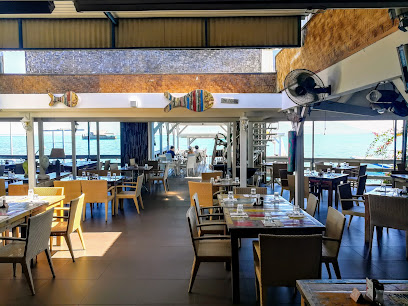
Hôtel Raiatea Lodge
Experience luxury and tranquility at Hôtel Raiatea Lodge in French Polynesia - where stunning views meet exquisite dining.

Le Lotus
Experience exquisite French cuisine at Le Lotus while enjoying breathtaking lagoon views in Tahiti's InterContinental Resort.
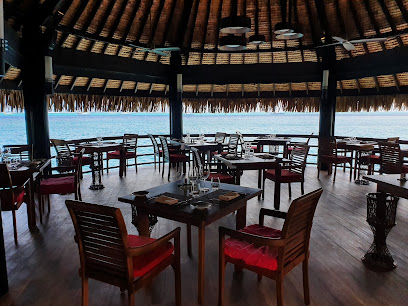
Opoa Beach Hotel
Discover Opoa Beach Hotel: Where exquisite cuisine meets breathtaking ocean views in French Polynesia.
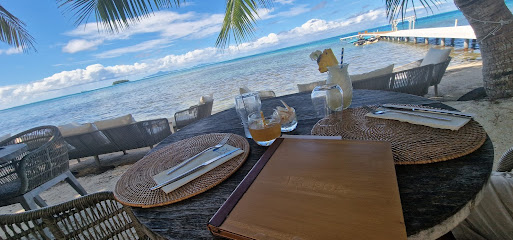
Restaurant Tama’a Maitai
Experience exquisite Polynesian flavors at Restaurant Tama’a Maitai while enjoying breathtaking views in beautiful Bora Bora.
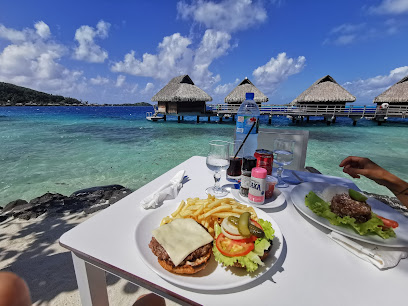
Fish & Blue
Experience the best of Polynesian cuisine at Fish & Blue – where fresh seafood meets tropical flavors in an enchanting setting.
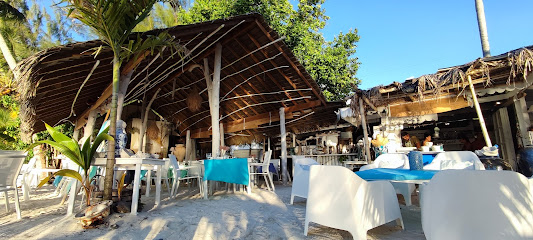
Le RAINA
Experience exquisite dining at Le RAINA in Papeete, where every dish tells a story of French Polynesia's rich culinary heritage.
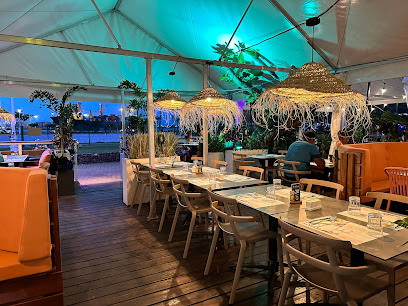
La Villa Mahana
Experience exceptional French cuisine with a Polynesian twist at La Villa Mahana in breathtaking Bora Bora.
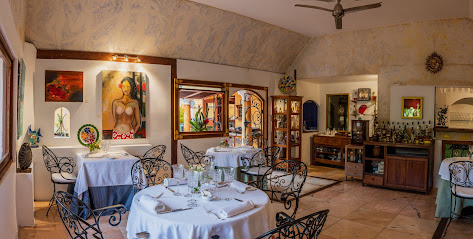
Restaurant Villa Ixora
Discover exquisite flavors at Restaurant Villa Ixora in Uturoa, where local cuisine meets breathtaking ocean views.
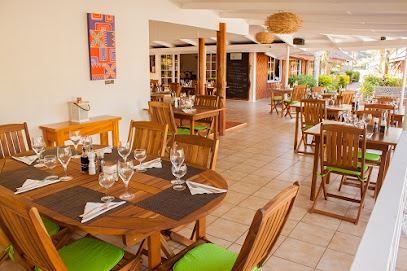
Snack Tonoi
Experience authentic Polynesian cuisine at Snack Tonoi in Uturoa - where every meal tells a story of local tradition and flavor.
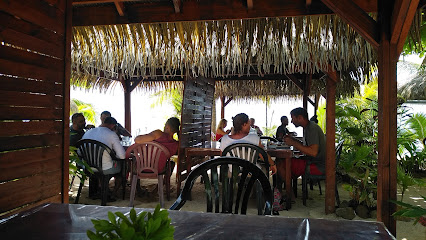
Restaurant Terre-Mer
Discover exquisite flavors at Restaurant Terre-Mer in Taiarapu-Est - where Polynesian tradition meets culinary excellence.
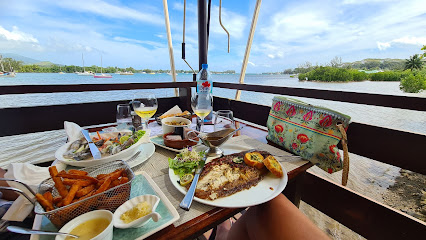
Tahaa Maitai
Experience exquisite French Polynesian cuisine at Tahaa Maitai amidst breathtaking island scenery and warm hospitality.
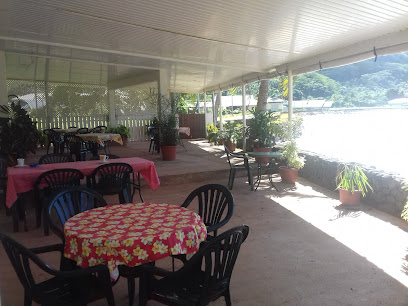
La Raie'Gate
Experience authentic Polynesian cuisine at La Raie'Gate in Uturoa with stunning views and warm hospitality.
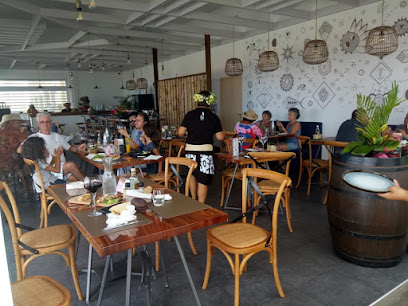
Markets, malls and hidden boutiques
Champion Raiatea
Discover the vibrant flavors of Raiatea at Champion, your one-stop supermarket for fresh produce and local delicacies in French Polynesia.
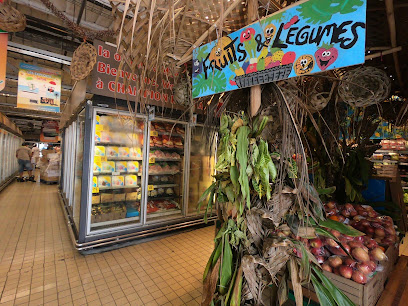
Vairua Perles
Explore Vairua Perles: A Hidden Gem of Exquisite Pearls and Authentic Polynesian Culture in the Heart of French Polynesia.
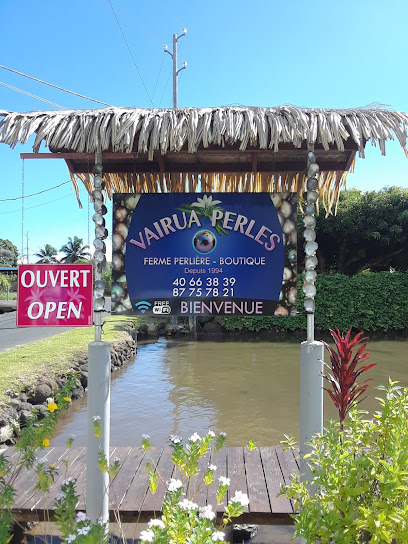
Pharmacie Lafayette Avera
Explore Raiatea with confidence - Pharmacie Lafayette Avera provides essential health and wellness supplies for all travelers.
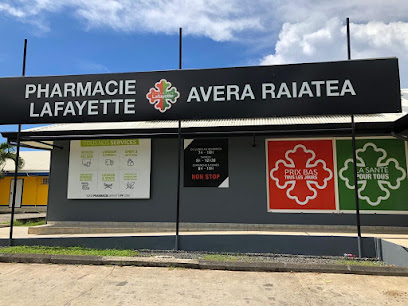
LS Proxi Uturoa
Explore the vibrant flavors of Polynesia at LS Proxi Uturoa, your essential supermarket in Raiatea for local produce and delicacies.
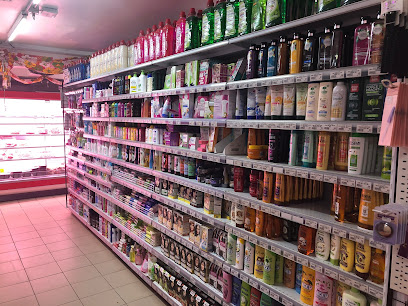
Anapa Pearls
Explore the exquisite beauty of Tahitian pearls at Anapa Pearls, a premier jewelry destination in stunning French Polynesia.
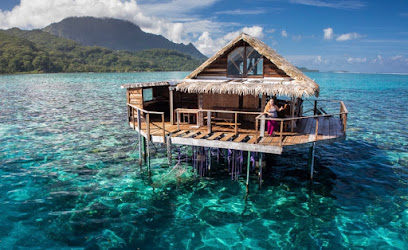
Boulangerie Pain du Fenua
Discover the authentic flavors of French Polynesia at Boulangerie Pain du Fenua, where every bite tells a story.
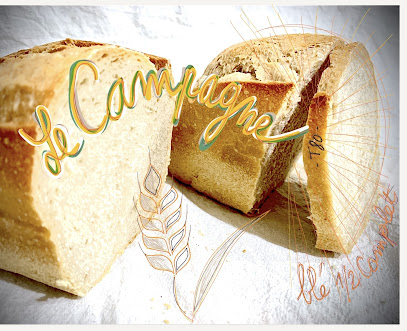
Mataio vanille
Explore the enchanting world of vanilla at Mataio Vanille in Raiatea, where culture meets flavor in a tropical paradise.
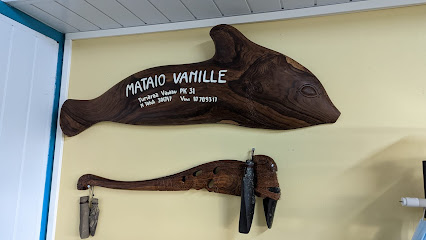
Perle D'Ô
Explore Perle D'Ô in Taputapuapea for unique beads and handcrafted jewelry that embody the spirit of French Polynesia.
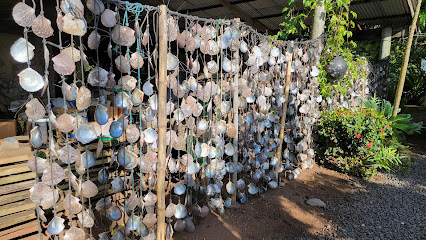
Havaii Sport
Discover Havaii Sport in Uturoa for all your adventure needs in stunning French Polynesia—gear up for unforgettable experiences in nature!
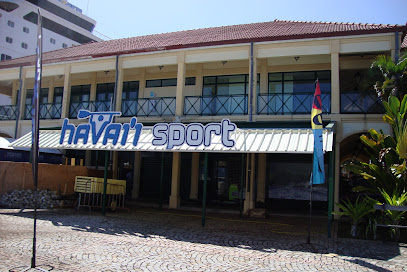
Magasin LIAUT
Explore the vibrant supermarket Magasin LIAUT in Uturoa for a delightful mix of local and international products, perfect for all your culinary needs.
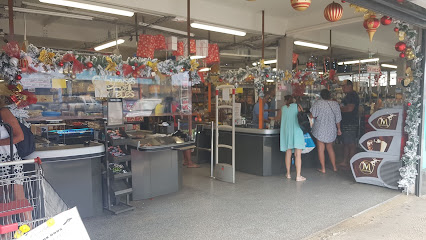
Tico Pearls Raiatea
Explore Tico Pearls Raiatea for exquisite handcrafted jewelry in the heart of French Polynesia, offering unique designs inspired by island beauty.

PHARMACIE DE RAIATEA
Discover the essential health services at Pharmacie de Raiatea, your go-to pharmacy in beautiful French Polynesia.
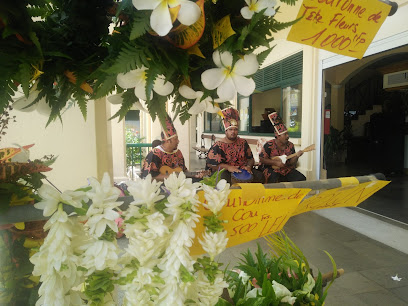
Gare Maritime - Uturoa
Discover the vibrant shopping experience at Gare Maritime - Uturoa, where local culture meets stunning marina views in the heart of Raiatea.
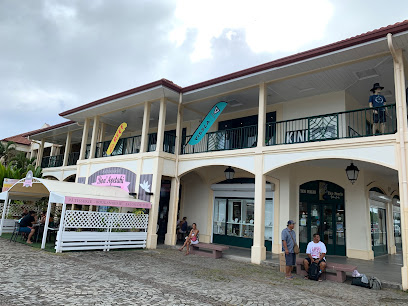
Magasin Leogite
Discover local flavors and everyday essentials at Magasin Leogite, a vibrant supermarket in the heart of Uturoa, French Polynesia.

Rainbow Bay - l'Atelier du Pāreu
Immerse yourself in the vibrant world of Polynesian textiles at Rainbow Bay - l'Atelier du Pāreu, Raiatea's premier fabric store.
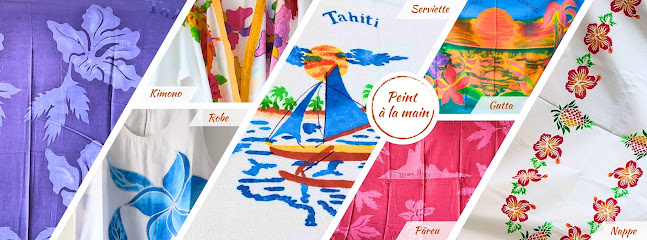
Essential bars & hidden hideouts
Opoa Beach Hotel
Discover Opoa Beach Hotel, where exquisite cuisine meets breathtaking ocean views in the heart of French Polynesia.
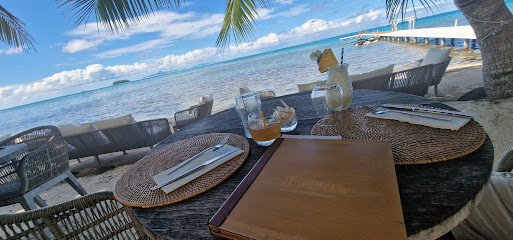
Fish & Blue
Discover the essence of local seafood at Fish & Blue, a must-visit restaurant in Tumaraa, French Polynesia, offering breathtaking views and exceptional flavors.
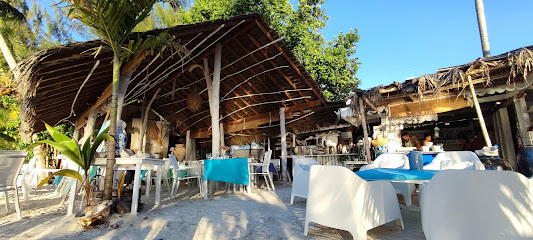
Restaurant Villa Ixora
Discover the flavors of French Polynesia at Restaurant Villa Ixora, where local ingredients meet stunning ocean views in a captivating dining experience.
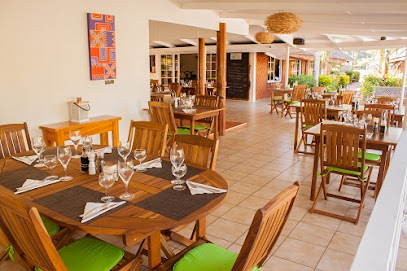
Snack Tonoi
Experience the authentic flavors of French Polynesia at Snack Tonoi, Raiatea's top destination for local cuisine and warm hospitality.
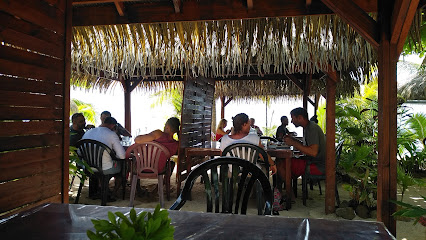
La Raie'Gate
Discover the vibrant flavors of French Polynesia at La Raie'Gate, where local culinary traditions meet stunning maritime views.
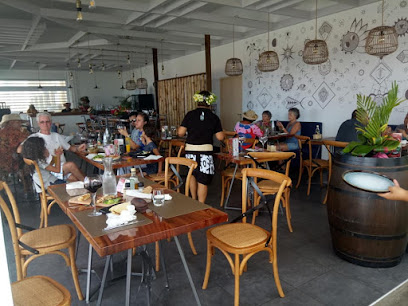
Snack Aéroport
Discover the best of Polynesian cuisine at Snack Aéroport in Uturoa, where every dish tells a story of the islands' rich culinary heritage.
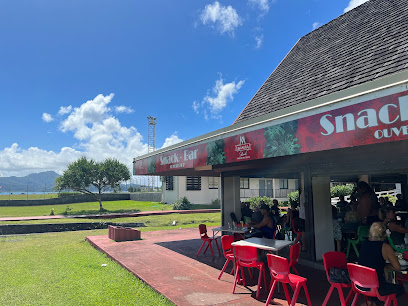
Restaurant La Voile d'Or à Raiatea - 'Āpo'oiti
Experience the culinary delights of Restaurant La Voile d'Or in Raiatea, where fresh local ingredients meet breathtaking island views.
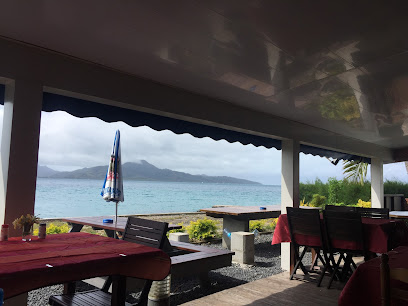
Le Napoli
Experience the vibrant flavors of French Polynesia at Le Napoli, a culinary treasure in Uturoa offering authentic dishes and a friendly atmosphere.
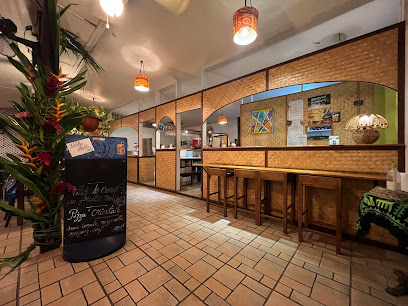
Roulotte Tevahine
Experience the authentic flavors of French Polynesia at Roulotte Tevahine, a charming restaurant nestled in Opoa with stunning ocean views.
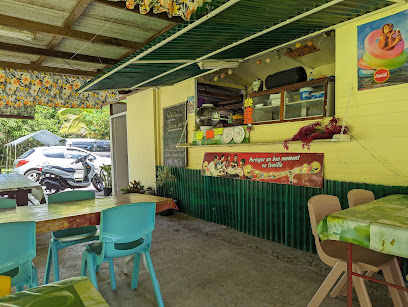
Restaurant Phoenix d'OR Raiatea
Experience the authentic flavors of French Polynesia at Restaurant Phoenix d'OR in Uturoa, a must-visit culinary destination for every traveler.
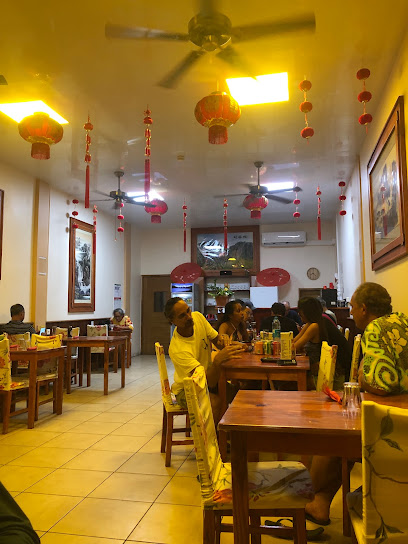
OIKOS
Experience the flavors of Raiatea at OIKOS, a restaurant dedicated to fresh local cuisine and the spirit of Polynesian hospitality.
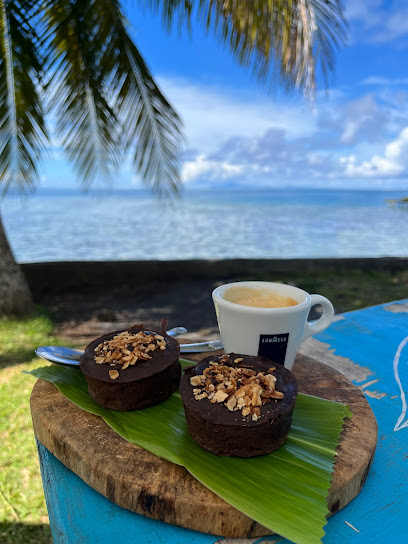
Brasserie Mara’amu (Chez Monpas)
Experience the fusion of local and French cuisine at Brasserie Mara’amu, a culinary gem in Uturoa, French Polynesia.
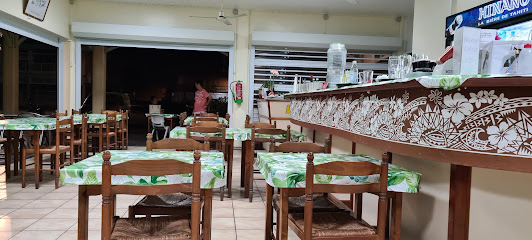
SNACK TAMARA
Experience the authentic tastes of Polynesia at Snack Tamara, a fast food haven in Taputapuatea, perfect for quick bites and local delights.

Roulotte O’Ray
Discover the vibrant flavors of Roulotte O’Ray in Uturoa, a fast food haven blending local and international cuisines in a tropical paradise.
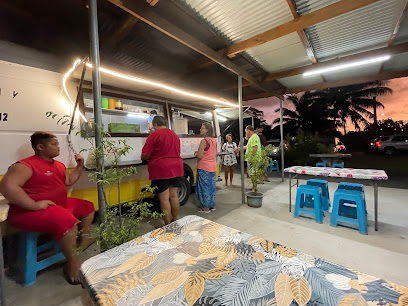
Local Phrases
-
- HelloIa orana
[ya oh-rah-nah] - GoodbyeNana
[nah-nah] - YesE
[eh] - NoAita
[eye-tah] - Please/You're welcomeMauruuru
[mah-roo-roo] - Thank youMauruuru
[mah-roo-roo] - Excuse me/SorryParuru
[pah-roo-roo] - How are you?Aita pea pea?
[eye-tah pay-ah pay-ah] - Fine. And you?Maita'i. E 'oe?
[my-tah-ee. eh oh-eh] - Do you speak English?Ua haere 'oe i te reo Anglais?
[oo-ah ha-eh-ray oh-eh ee te ray-oh ahng-lay] - I don't understandAita e mohio
[eye-tah eh mo-hee-oh]
- HelloIa orana
-
- I'd like to see the menu, pleaseTe paruru i te meniu, maruru
[teh pah-roo-roo ee teh meh-nee-oo, mah-roo-roo] - I don't eat meatAita e 'ai i te rori
[eye-tah eh eye ee teh roh-ree] - Cheers!Manuia!
[mah-noo-ee-ah] - I would like to pay, pleaseTe paruru i te moni, maruru
[teh pah-roo-roo ee teh moh-nee, mah-roo-roo]
- I'd like to see the menu, pleaseTe paruru i te meniu, maruru
-
- Help!Aide!
[eye-day] - Go away!Haere i te taime!
[ha-eh-ray ee teh tay-may] - Call the Police!Haere i te fanaa
[ha-eh-ray ee teh fah-nah-ah] - Call a doctor!Haere i te hauora
[ha-eh-ray ee teh how-oh-rah] - I'm lostE haere i au haere
[eh ha-eh-ray ee oh ha-eh-ray] - I'm illE haere i au haere
[eh ha-eh-ray ee oh ha-eh-ray]
- Help!Aide!
-
- I'd like to buy...Te paruru i te hana...
[teh pah-roo-roo ee teh hah-nah] - I'm just lookingE haere ae au i te titaua
[eh ha-eh-ray eye oh-oh ee teh tee-tah-oo-ah] - How much is it?E haere ae au i te titaua
[eh ha-eh-ray eye oh-oh ee teh tee-tah-oo-ah] - That's too expensiveTe aroha roa
[teh ah-roh-hah roh-ah] - Can you lower the price?Haere i te faahoro
[ha-eh-ray ee teh fah-ah-ho-roh]
- I'd like to buy...Te paruru i te hana...
-
- What time is it?He aha te wa?
[heh ah-hah teh wah] - It's one o'clockE tahi te wa
[eh tah-hee teh wah] - Half past (10)I te toru
[ee teh toh-roo] - MorningPoipoi
[poh-ee-poh-ee] - AfternoonAuahi
[ow-ah-hee] - EveningHinehine
[hee-neh-hee-neh] - YesterdayIneine
[ee-neh-ee-neh] - TodayAtea
[ah-teh-ah] - TomorrowApopo
[ah-poh-poh] - 1Tahi
[tah-hee] - 2Rua
[roo-ah] - 3Toru
[toh-roo] - 4Wha
[fah] - 5Rima
[ree-mah] - 6Ono
[oh-noh] - 7Whitu
[fee-too] - 8Waru
[wah-roo] - 9Iwa
[ee-wah] - 10Tekau
[teh-kow]
- What time is it?He aha te wa?
-
- Where's a/the...?Aha atu te...
[ah-hah ah-too teh...] - What's the address?He aha te tuhinga?
[heh ah-hah teh too-hee-ngah] - Can you show me (on the map)?Haere i te faahoro mai i au (i te mahere)?
[ha-eh-ray ee teh fah-ah-ho-roh my ee oh (ee teh mah-heh-ray)] - When's the next (bus)?He aha te ra e hee atu?
[heh ah-hah teh rah eh hee ah-too] - A ticket (to ....)Tele i te...
[teh-leh ee teh...]
- Where's a/the...?Aha atu te...
History of Raiatea
-
Raiatea, known as Havai'i in ancient times, is often considered the cultural and spiritual heart of French Polynesia. It is believed to be the birthplace of Polynesian culture and the original home of the Maori people. The island's sacred status is underscored by its numerous marae, ancient Polynesian temples and meeting grounds, that dot the landscape.
-
The Marae Taputapuatea, a UNESCO World Heritage Site, is one of the most significant historical sites on Raiatea. Dating back over a thousand years, this marae served as a central religious and cultural hub for the Polynesians. It was a place where leaders and navigators from different islands gathered to offer sacrifices and seek guidance from the gods.
-
European explorers first arrived in Raiatea in the 18th century. Captain James Cook visited the island in 1769 during his first voyage to the Pacific. Cook's interactions with the island's inhabitants provided valuable insights into Polynesian navigation and culture. The arrival of Europeans also marked the beginning of significant changes for the island's society.
-
In the early 19th century, Christian missionaries arrived in Raiatea, led by figures like John Williams of the London Missionary Society. The introduction of Christianity had a profound impact on the local culture and social structures. Traditional religious practices were suppressed, and many ancient marae were abandoned or dismantled.
-
Raiatea became part of French Polynesia in the late 19th century. The island was officially annexed by France in 1888, and it became a key outpost in the French colonial empire. The colonial period brought both development and challenges, including the introduction of new economic activities and the imposition of French administrative structures.
-
Today, Raiatea is known for its stunning natural beauty and rich cultural heritage. The island continues to be a vital link in the Polynesian cultural network, with ongoing efforts to preserve its historical sites and traditions. Modern Raiatea is a blend of ancient Polynesian culture and contemporary influences, offering visitors a unique window into the past and present of French Polynesia.
Raiatea Essentials
-
Raiatea is located in the Society Islands of French Polynesia. The easiest way to get there is by flying into Fa'a'ā International Airport in Tahiti, then taking a domestic flight to Raiatea Airport. Air Tahiti provides regular flights between Tahiti and Raiatea. The flight duration is approximately 45 minutes. Alternatively, you can also reach Raiatea by ferry from Papeete, Tahiti, which offers a more scenic but longer journey.
-
Once on Raiatea, transportation options include rental cars, scooters, bicycles, and taxis. Car rentals are available at the airport and in Uturoa, the main town. Bicycles and scooters can be rented for shorter trips and to explore the island at a leisurely pace. Taxis are available but can be expensive, so it's advisable to agree on a fare before starting the journey. There is no public bus service on the island.
-
The official currency of French Polynesia is the French Pacific Franc (XPF). Credit cards are widely accepted in hotels, restaurants, and larger stores. However, it is advisable to carry some cash for smaller establishments and markets. ATMs are available in Uturoa, but it's wise to have enough cash before venturing to more remote areas of the island.
-
Raiatea is generally a safe destination for tourists. However, it is always prudent to take standard precautions. Avoid leaving valuables unattended on the beach or in rental cars. The island has a low crime rate, but it's best to stay vigilant, especially in crowded areas. There are no specific high-crime neighborhoods targeting tourists.
-
In case of emergency, dial 15 for medical assistance, 17 for police, and 18 for fire services. The main hospital is located in Uturoa and offers reliable medical services. It is advisable to have travel insurance that covers medical emergencies. For minor health issues, pharmacies are available in Uturoa where you can purchase over-the-counter medications.
-
Fashion: Do dress casually and comfortably, but avoid overly revealing clothing, especially when visiting religious sites. Religion: Do respect local customs and traditions. Remove your shoes when entering homes and places of worship. Public Transport: There is no public transport system on Raiatea. Taxis and rental vehicles are the main modes of transport. Greetings: Do greet people with a friendly 'Ia Orana' (hello). A handshake is also common. Eating & Drinking: Do try local delicacies and be polite when offered food. Don't waste food, as it is considered disrespectful.
-
To experience Raiatea like a local, visit the Uturoa market where you can buy fresh produce and traditional Polynesian goods. Engage with locals, who are often friendly and willing to share stories about their culture and island. Don’t miss visiting Marae Taputapuatea, a UNESCO World Heritage Site, to understand the island’s historical and cultural significance. For a unique experience, consider a lagoon tour or a hike up Mount Temehani for breathtaking views.
Trending Landmark in Raiatea
-
Water Gardens Vaipahi
-
Fa'aruma'i Waterfalls
-
Marae Taputapuatea
-
Matira Beach
-
Grottes De Mara'a
-
Tohora Bora Bora Snorkeling Lagoon Tours & Whale Watching
-
Hôtel Raiatea Lodge
-
'Ārahurahu Marae
-
WWII Guns Faanui
-
Restaurant Villa Ixora
-
ʻĀmanahune
-
de Raiatea Botanical Garden
-
La vallée de la vanille
-
Sunset Beach Motel
-
Fare Pea Iti Romantic Lodge
Nearby Cities to Raiatea
-
Things To Do in Bora Bora
-
Things To Do in Huahine
-
Things To Do in Maupiti
-
Things To Do in Moorea
-
Things To Do in Tetiaroa
-
Things To Do in Papeete
-
Things To Do in Tahiti
-
Things To Do in Rangiroa
-
Things To Do in Matavera
-
Things To Do in Muri
-
Things To Do in Ngatangiia
-
Things To Do in Avarua
-
Things To Do in Takitumu
-
Things To Do in Avatiu
-
Things To Do in Nikao






